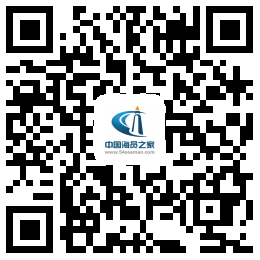船长是船上最重要的职位,也是各方面要求最高的职位。船东在面试船员时对船长的考核最认真,最浪费时间,也是最复杂的。作为一名合格的船长,不但要求有丰富的海上工作经历、娴熟的船舶驾驶经验技术,更要有很好的商务操作能力、领导管理能力、极佳的个人人品、强大的人格魅力和感召力。提问船长的问题涉及到国际安全管理规则、安全管理体系、船长资历、船舶管理、各种具体商务和技术问题等等。
下面收集了一部分面试试题,供广大面试船长参考。其中的部分问题,不但船长必备,其他干部船员,尤其是大副也必须看,轮机长也应该参考一下。
1. Can you tell me about your education background?
Please refer to an Master’s self-introduction in Part One of this book.
实事求是,最好告诉人家在某个学校学了多长时间,最好也要告诉人家你接受某些社会培训的情况,谦虚好学毕竟是一个美德嘛。
2.What is a classification society? What is the purpose of classification survey? Please list some famous classification societies in the world.
A classification society is usually an independent organization that carries out classification surveys, statutory surveys([船舶]法定检验.[ˈstætjutəri]), surveys related to notaries matters for ships, offshore installations, marine freight containers, materials and marine equipment. It also provides safety management certification services to shipping companies and their ships. The purpose of classification survey is to evaluate the situation of a ship and the management of a company and its ship.
Some of the famous classification societies are: NK(Japanese 日本海事协会), CCS(Chinese classification society), ABS(American), DNV(Norwegian), LR(British Lloyd 英国劳氏), GL(German Lloyd 德国劳氏), KR(Korean), RINA(意大利船级社)。
3.Can you talk about the previous vessels worked on board?
Please refer to an master’s self-introduction in Part One of this book.
实事求是,若没有做过,千万不要伪造。并且服务簿、书面简历以及你口头介绍的资历的内容一定要一致,特别是时间、船型、航区、吨位、船员情况、外派公司、船东及租船公司情况,因为你是船长,应该对自己管理的船有非常深的印象。
4.What type of cargo was carried on board your last vessel?
曾经在什么船上工作过,运过什么货物也是船东非常关心的问题,因为船东在考虑把他的一条船交给你时,对你是运过某种他们的船舶载的货物非常关键。因为你只有运过某种货物,才对这种货物的特性、装卸时需要注意的事项、运输中需要注意的事项有所了解和经验。其实,你如果运过某些货物,你也应该说出来。
下面提供几种货物的名称,供参考:
Bulk cargo: cement, cement clicker, nickel, ore, iron, sand, phosphorus rock, potash in bulk, salt, grain, pet coke, coal etc. Urea fertilizer, lime
General cargo: vehicle, loader, wagon, heavy lifts, over-length cargo, mine equipment, steel construction material.
Other: log, plywood, container, and so on.
5.Where was your last vessel’s trading area? Which ports have you called?
I have rich experience in calling the ports in the US, some developing countries and in the passage through the Suez Canal, Panama Canal, and Denver Strait, and Denmark Strait. Nagoya; Oita;Tobata;Osaka;mu;Dampier;Walcoot;Gladstone;Haypoint;Merkey;Hedland
Some useful expressions for trading areas: 全球航线ocean-going, world widely, globally, worldwide; 固定航线 fixed route.
6.Can you tell me the differences between the Chinese stateowned shipping companies and foreign shipping companies?
Basically, in my opinion, there are not big differences at all. It seems to me that foreign owners are more concerned about the master’s overriding authority on board while the Chinese shipping companies tend to ask their local agents to do more for the vessel. Another major difference between them is that the Safety Management System of the Chinese companies is in Chinese and the working language on board is Chinese. What’s more, most of the Chinese owners use the CCS for classification while foreign owners may use different classification societies.
各个国家的船公司都有自己的特点和特色。至于您如何回答这个问题并不重要,关键是不要妄自菲薄;试想一下,如果中国的船东一无是处的话,我们中国船员的素质又会如何。
7.In case of cargo damage, for example, before the vessel arrives at the discharging port, you find the quality of the su***ce cargo has changed, how would you handle it?
I have to look into the reason and volume of the damage first, and then I’ll contact the owner for instruction. In the event of small quantity of grain, I shall just throw it into the sea to avoid disputes. Or I will follow the owner’s instruction to contact it’s the P & I correspondent or local agent for their advice.
If necessary, I’ll prepare a Sea Protest to claim that the ship owner and the crew have exercised their due diligence.
关于货损方面的处理程序,各个公司都有相关的操作和程序文件,上面只是一般的处理原则。
8.How do you understand the Master’s overriding authority under emergency situations?
If the situation and time permit, the Master should always report to the company first before taken actions. However, when the ship is in immediate danger, the Master shall exercise his overriding authority and take whatever actions necessary in dealing with an emergency situation in order to protect the safety of the seafarers, the cargo, the vessel, the port and the environment without considering too much the demands of the ship owner and the charterer. Nevertheless, the Master should report to the company in detail what has happened after the event.
9.Can you tell me about your experience as a Captain?
Hints: Your experience may include such things as the duration you have worked as a Captain, the places or ports you have ever been to, the types of vessels you have ever served, the types of cargo you have ever experienced, the types of trip you have ever experienced, the management styles on the vessels, and so on.
Please also refer to chapter one for more detailed answers.
10.What is the Master’s Standing Order?
It is basically the Master’s own set of instructions and orders for the vessel’s operation. The contents may include the watch-keeping duties for the officers, when to ask for order from the master, the port entry procedure, and how to deal with emergency situations like oil pollution, fire disaster, collision, grounding, as well as when to call the master to the bridge, and so on. For special vessels (tanker, LPG or car carriers, etc.) the standing orders may have some more contents.
The Standing Order is normally found on the first pages of Deck Log Book and in the Bridge Order Book. Besides, some warnings shall be prominently[ˈprɔminəntli] 显著地
posted on the bridge and read and signed by all duty officers.
11.How do you understand the importance of keeping good and harmonious relationship with the Chief Engineer and other Officers and Engineers?
Without harmonious relationship with the Chief Engineer and the other officers and engineers, the Master cannot manage the ship well. But how can the Master achieve it?
First of all, the Master must have close contact with the department heads because the daily management is delegated .[ˈdeliɡit] 委托 to them although the Master himself is responsible for the overall safety and personnel management.
Secondly, the Master himself must know his job well and know when to do what and how.
Thirdly, the Master should be very strict in himself in discipline and behavior.
Fourthly, he should be fair in job assignment, pay distribution and other daily management. But if someone on board breaks the Master’s order or the rules on purpose, the Master will have to penalize [ˈpi:nəlaiz] 惩罚 the offender and can consider firing him according to the procedure of the ship owner.
这是一个考验船长管理能力的问题,可能不同船长有不同的管理经验和办法,但是船东希望船长在这方面有较好的办法。有些船长在回答这类问题时,会不假思索地说:“I will dismiss those who do not listen to me”。我们这样的和船长未免太霸道了。上述答案只是笔者个人见解,谨供参考。
12.Did you have the experience of working with foreign crews?
Yes, I have worked on four ships of mixed crew from China, China Taiwan, Philippine, Vietnam, Russia, South Korea, Japan, Burma and Ukraine.
实事求是。但是,外派资历是外国船东很看中的事,如果你有很好的外派资历,可千万不要错过让船东知道的机会。
13.How do you differentiate the Chinese crews and the Philippine crews? Or how do you like the Philippine (Korean, Vietnamese, Indian, Burmese, Ukrainian, Russian, British etc.) seamen?
I had the experience of working with the Filipino crew. The Filipinos are mostly very professional and obedient. Sometimes they are also demanding in terms of wages. As a whole, they are very nice seafarers.
在回答这类问题时,切忌把其他国家的海员说得一无是处,如果你认为人家什么都不是的话,那么很难想象你在未来的工作中能和人家配合发。何况,不论哪个国家、哪个文化的人都有好人和坏人。要尽量说出人家的长处。船员队伍本来就很国际化,在一个类似“联合国”的工作团队里,能和不同国籍的、不同文化的、不同性格的人相处,显得十分重要。
14.Can you tell me about the companies you have worked for? What are the differences among these companies?
The company I have worked for the past ten years is a state-owned company. It is a good company. But the management of the company is, in some ways, different from foreign shipowners companies.
实事求是。同样,也不希望你过多地贬低你曾经工作过的公司,因为既然你憎恨所有原来的公司,你也可能会憎恨你即将服务的新公司。而事情往往是,在船东认为,公司和船东发生冲突时,并不见得你公司的问题,也许是你本人就不适合在原来的公司工作。
15.How is a passage/voyage plan made on board ships? What materials do you need to refer to when you make such plans?
Usually, a passage plan should be made before a new voyage starts. The Master should give the Second Officer the sailing instructions and his intentions on the sailing routes and before the Second Officer prepares the draft plan. Then the Master is supposed to check it very carefully. If something wrong is found in the passage plan, the Master should ask the Second Officer to correct it immediately. If nothing is wrong about the draft, the plan shall be ratified and implemented.
When the Second Officer is making the draft plan, the Master should help provide some important information sources for the Second Officer, such as the port entry guidance, the sailing directions, lists of lights, tidal stream tables, deep draught vessel planning guide, the IMO ship route guidance, government and port authority’s regulations, pilot charts, notice to mariner, weather information, and the voyage plan and so on.
The Master should ensure that the plan covers “berth to berth” area in the passage. And the Master should help the Second Officer to select the best sailing route that will save fuel and time, and avoid bad weather conditions.
16.Can you describe the preparation procedures before entering the US ports?
First, I must check all the certificates for the vessel and the seamen to make sure all the necessary certificates are available to deal with the customs clearances, the sanitary checks and other port checks. In addition, I must prepare such publications as currently corrected navigational charts, US costal pilot guide, light list book, light list book, tide tables, US inland rules of navigation, and recent notice to mariners.
Forty-eight hours prior to entry to a US port, I shall conduct the following emergency steering drills and log them into the record books: operation of the main steering gear from steering compartment, communication between bridge and steering compartment, and alternative power supply. I shall also inform the Qualified Individual of my arrival.
Twenty-four hours before arrival in a US port, I shall notify the USCG of my ship’s arrival.
Twelve hours prior to arrival in a US port, the following equipment shall be tested and recorded in the log book: primary and second steering gear, internal control communications and alarms, standing-by emergency generator, and main propulsion machinery.
Drills are also the priorities of my preparatory work. Usually, the port authority of the US pays special attention to the drills. So boat drills, fire-fighting drills and other drills must be carried out before entering into any US port.
Sanitary situation of my ship is another consideration. Proper disposal of garbage on cy ship and anti-pollution devices examination are very important.
All in all, much more care should be taken before entry into any US port than in the ports in other countries.
美国是世界上海事立法最多,也是港口检查最严格的国家之一,熟悉美国有关海事立法和港口国检查要求对一名船长来说非常重要,这也是船东特别关注的问题。
17.Did you encounter any problems during PSC inspections in the US ports?
No, I have never met any big problems because I always made good preparation before my vessel called at the US port. Each time I was able to go through the PSC inspections smoothly.
Or you can say:
Yes, I once had a problem during PSC inspection in a US port. The ARPA couldn’t be activated since the power supply was out of work. The USCG only allowed us a few hours to repair it. To their satisfaction, the ARPA was back to normal after only one hour. Luckily we didn’t have any fine imposed on us. I understand from this experience that good preparations in advance are very important. Even if there is a problem, I will ask my crew to rectify it in the least possible time.
18.How should the pre-departure seminar be conducted in the port?
According to my experience, a safety meeting shall be held prior to departure and some of the important issues like the un-berthing operation (including the deck and engine room), cargo & hull lashing check, stowaway check, cooperation with the pilot and other engineering (technical) matters should be discussed at the meeting.
19.Why should the Master always be aware of the actions being taken by the pilot?
Well, it’s because the presence of the pilot on the bridge does not relieve the Master from taking any measures necessary to assure the safety of the ship and marine environment. If he finds that the pilot’s orders are doubtful, the Master has to clarify the orders immediately. When necessary, the Master shall command the ship’s navigation himself.
引航员在船引航时并没有解除船长和船员对于船舶安全的责任是ISM体系特别强调的一点,船长应该熟知并让每位船员熟知。
20.What should the Mater do if he is unsure about his legal standing in a foreign country or a strange port?
He must contact the company at once for advice. He should also, if necessary, consult the local correspondent of the owner’s P & I and the local agent of the ship who can provide advice and assistance.
绝大多数船东希望远在海上的船员能及时和船东沟通,并把一些解决不了或不是很明白的问题及时向他们报告。当然,和船东公司在各个国家和港口代理的沟通也十分重要。
请登录后评论~





 联系我们人工客服
联系我们人工客服



















 :1391995811
:1391995811

